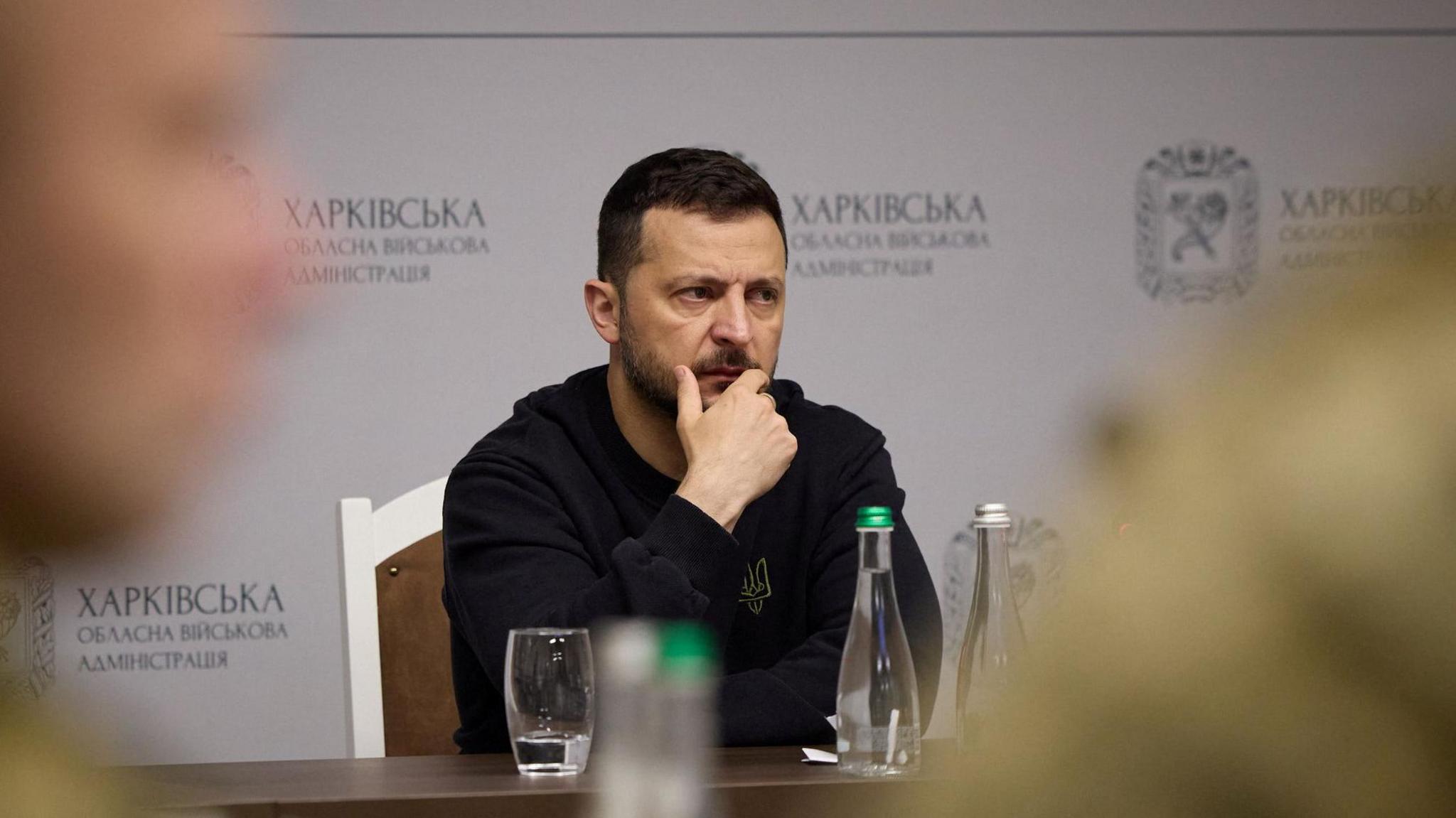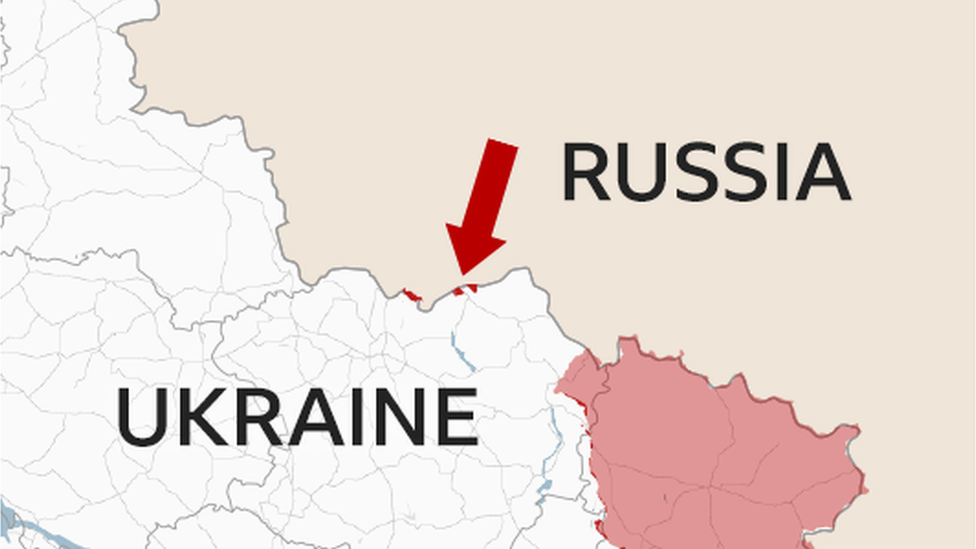Thousands flee Russian offensive in Kharkiv region
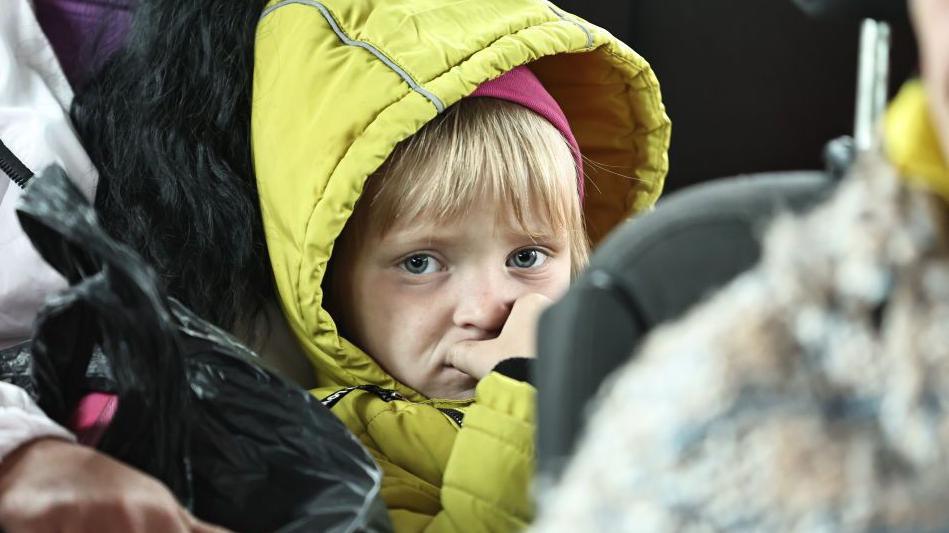
Humanitarian needs in the region are growing fast, the United Nations has warned.
- Published
Fighting around Ukraine’s second largest city has so far displaced around 14,000 people, according to the World Health Organization (WHO).
Russian forces recently began a summer offensive, grabbing several villages on Ukraine's north-eastern frontier near the city of Kharkiv as they attempt to break through a weakened Ukrainian front line.
Kharkiv's regional leader said seven people had been hurt as a result of Russian drone strikes on the city overnight.
Meanwhile a Ukrainian drone strike across the border into Belgorod killed at least one person, according to Russian media.
Speaking at a press briefing, the WHO’s Jarno Habicht said that 14,000 had fled the fighting in the area, but the 189,000 people who remained near the border with Russia faced “significant risks due to ongoing fighting”.
Ukraine still controls about 60% of Vovchansk, a border town at the heart of the recent fighting, deputy regional head Roman Semenukha told national television on Monday.
Another Ukrainian military official told AFP that fighting in the Kharkiv "remains difficult and is changing dynamically".
Russia is increasingly using cheap but highly destructive "glide bombs" to advance its offensive in Ukraine. More than 200 of them are thought to have been used in just a week to hit Vovchansk.
At an unannounced trip to Kyiv on Tuesday, Germany’s foreign minister Annalena Baerbock urged the West to supply more air defence weapons so that Ukrainians were protected from the "rain of Russian drones and missiles”.
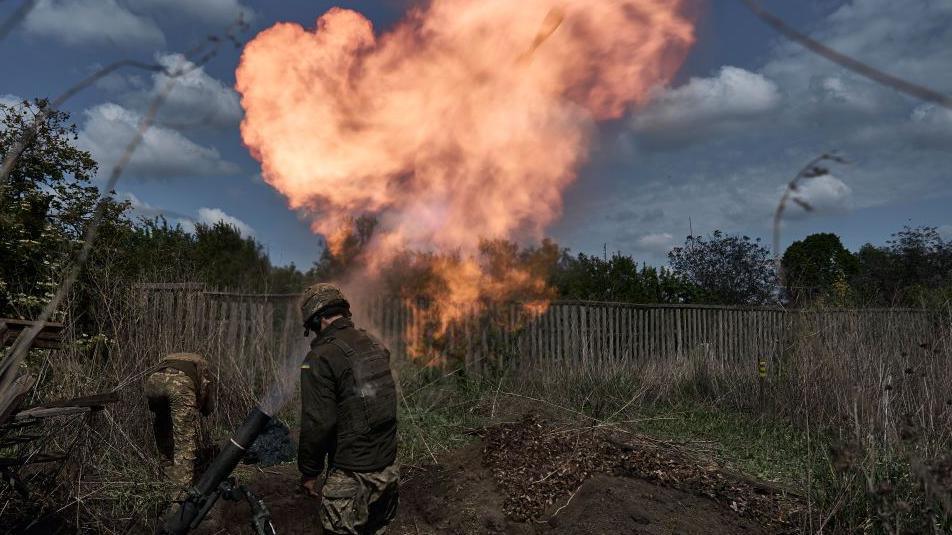
Ukraine's president Volodymyr Zelensky fears the summer assault could only be a first wave.
The governor of Russia's Belgorod Region, which borders Ukraine, said that a woman was killed and three others were injured as a result of a drone strike on a moving car.
"A kamikaze drone attacked a moving car in which there was a driver and three passengers," Belgorod’s governor said in a post on Telegram.
Vyacheslav Gladkov said a woman died at the scene, about 12km (7 miles) from the Ukrainian border. Three other people in the vehicle were wounded, he said.
The US-based Institute for the Study of War think tank has said the aim of Russia's assault in the Kharkiv region is to create a buffer zone to fend off Ukraine’s own cross-border attacks.
Ukraine's President Volodymyr Zelensky warned last week that the Russian ground offensive may only be a "first wave".
Related topics
- Published17 May 2024
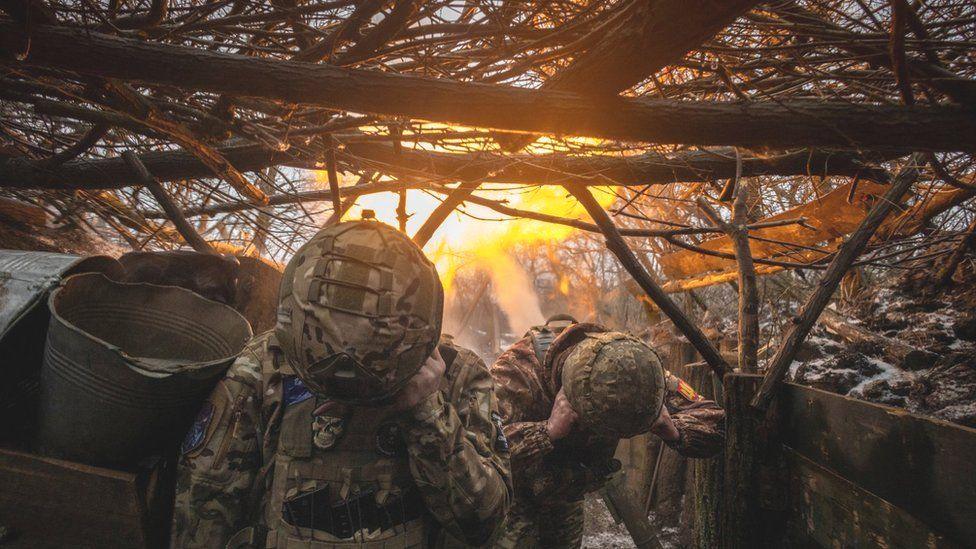
- Published16 May 2024
